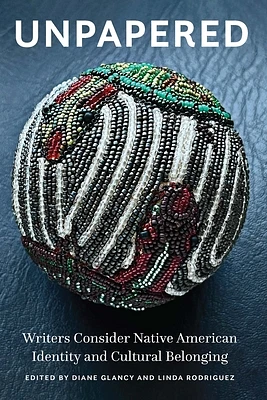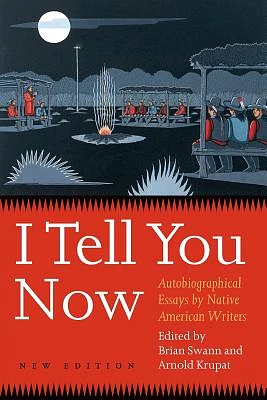Home
Unpapered: Writers Consider Native American Identity and Cultural Belonging
Loading Inventory...
Barnes and Noble
Unpapered: Writers Consider Native American Identity and Cultural Belonging
Current price: $21.95


Barnes and Noble
Unpapered: Writers Consider Native American Identity and Cultural Belonging
Current price: $21.95
Loading Inventory...
Size: Paperback
*Product Information may vary - to confirm product availability, pricing, and additional information please contact Barnes and Noble
Unpapered
is a collection of personal narratives by Indigenous writers exploring the meaning and limits of Native American identity beyond its legal margins. Native heritage is neither simple nor always clearly documented, and citizenship is a legal and political matter of sovereign nations determined by such criteria as blood quantum, tribal rolls, or community involvement. Those who claim a Native cultural identity often have family stories of tenuous ties dating back several generations. Given that tribal enrollment was part of a string of government programs and agreements calculated to quantify and dismiss Native populations, many writers who identify culturally and are recognized as Native Americans do not hold tribal citizenship. With essays by Trevino Brings Plenty, Deborah Miranda, Steve Russell, and Kimberly Wieser, among others,
charts how current exclusionary tactics began as a response to "pretendians"--non-indigenous people assuming a Native identity for job benefits--and have expanded to an intense patrolling of identity that divides Native communities and has resulted in attacks on peoples' professional, spiritual, emotional, and physical states. An essential addition to Native discourse,
shows how social and political ideologies have created barriers for Native people truthfully claiming identities while simultaneously upholding stereotypes.
is a collection of personal narratives by Indigenous writers exploring the meaning and limits of Native American identity beyond its legal margins. Native heritage is neither simple nor always clearly documented, and citizenship is a legal and political matter of sovereign nations determined by such criteria as blood quantum, tribal rolls, or community involvement. Those who claim a Native cultural identity often have family stories of tenuous ties dating back several generations. Given that tribal enrollment was part of a string of government programs and agreements calculated to quantify and dismiss Native populations, many writers who identify culturally and are recognized as Native Americans do not hold tribal citizenship. With essays by Trevino Brings Plenty, Deborah Miranda, Steve Russell, and Kimberly Wieser, among others,
charts how current exclusionary tactics began as a response to "pretendians"--non-indigenous people assuming a Native identity for job benefits--and have expanded to an intense patrolling of identity that divides Native communities and has resulted in attacks on peoples' professional, spiritual, emotional, and physical states. An essential addition to Native discourse,
shows how social and political ideologies have created barriers for Native people truthfully claiming identities while simultaneously upholding stereotypes.


















